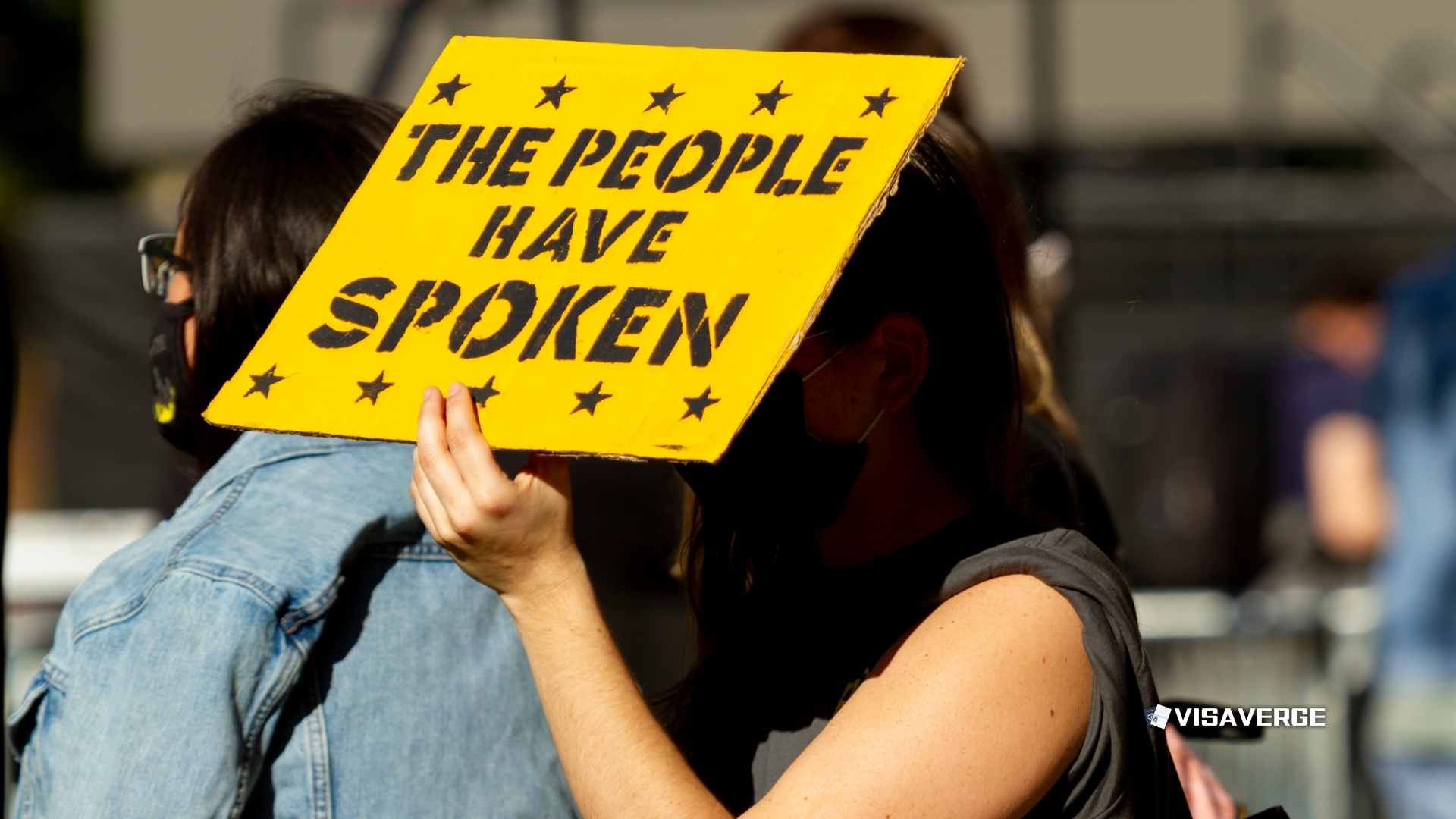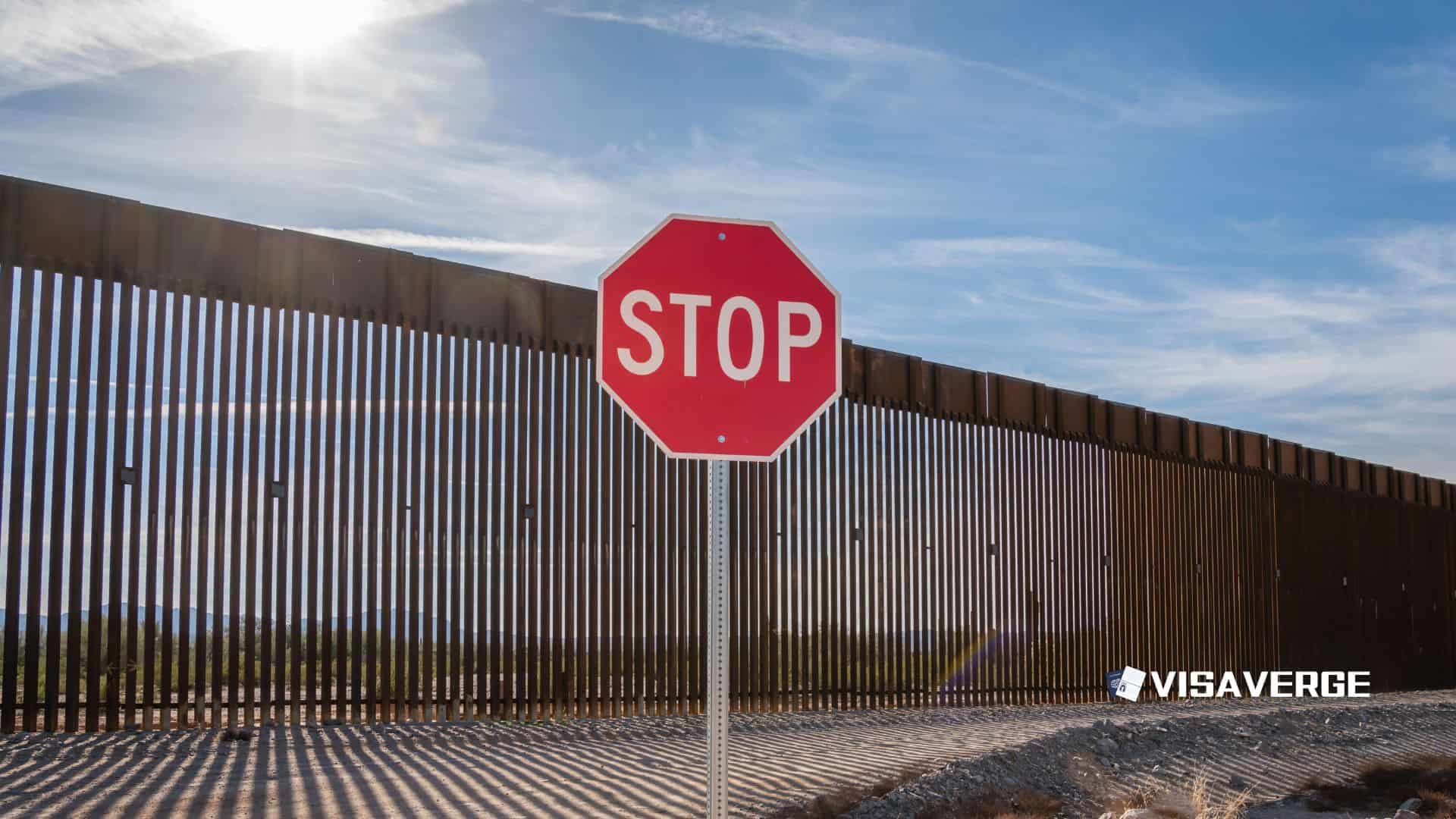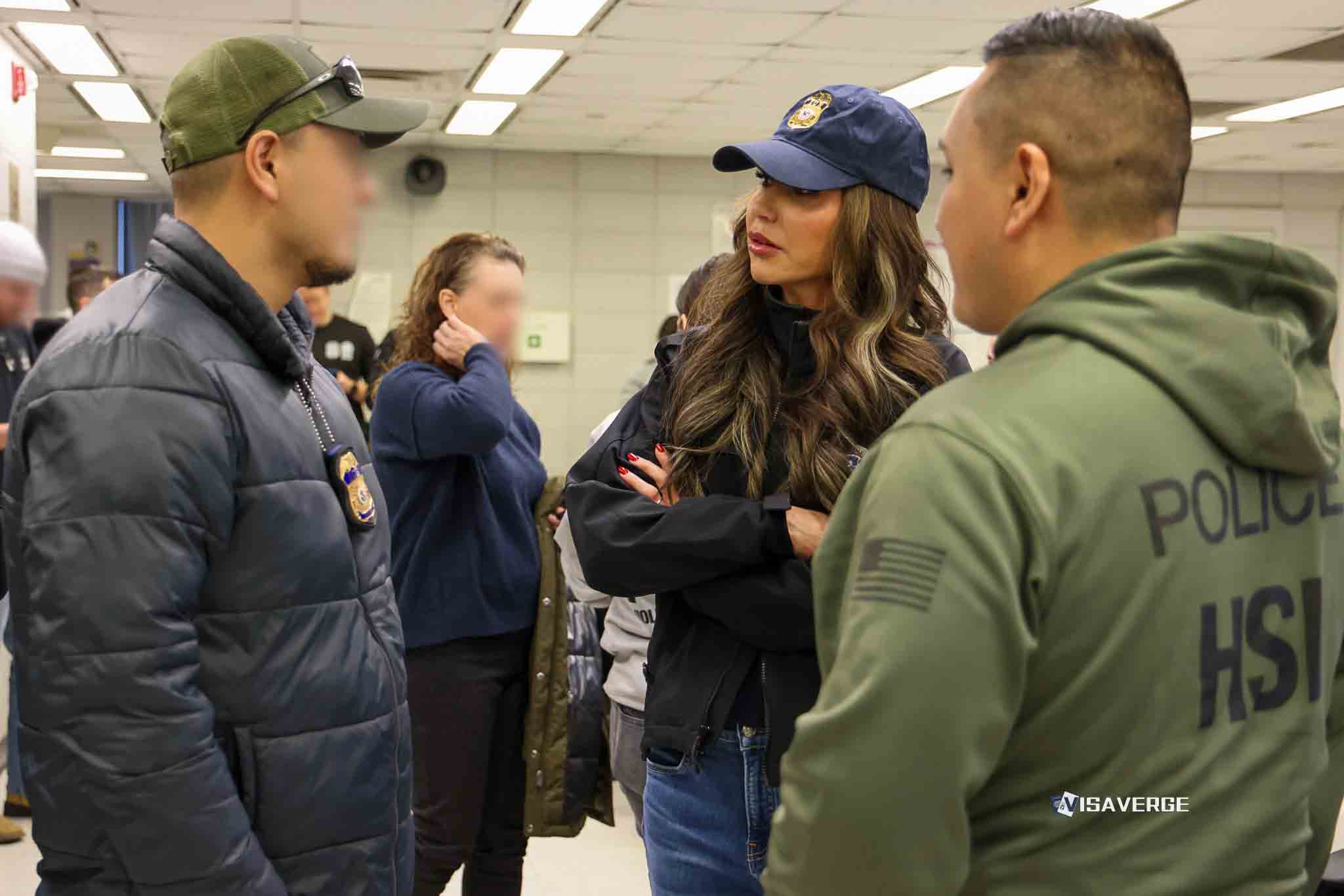Key Takeaways
• ICE agents harass courthouse volunteers with elevator delays, threats, photos, and refusal to identify themselves in multiple U.S. cities.
• Seventeen state attorneys general, led by Letitia James, seek court intervention to stop unconstitutional ICE raids.
• Volunteers remain committed despite intimidation, aiding immigrants with rights, legal help, and emotional support during hearings.
Courthouse volunteers who help immigrants during immigration hearings are facing new levels of harassment from ICE agents in several major cities, including Sacramento, San Francisco, San Diego, and Denver. Reports from July 2025 show that these ICE agents use intimidation tactics—like riding elevators with volunteers and immigrants, pushing all the elevator buttons to delay them, making threatening jokes, and showing off handcuffs—to scare both the volunteers and the people they are trying to help. Some volunteers say ICE agents have taken their photos while they escort families, and even threatened to use facial recognition to identify them. One ICE agent reportedly refused to give his name or badge number, making volunteers feel even less safe and raising questions about accountability. Despite these actions, courthouse volunteers keep showing up, determined to support immigrants through their legal battles.
This growing pattern of harassment is part of a larger trend of aggressive ICE enforcement that has sparked legal and political backlash across the United States 🇺🇸. On July 7, 2025, New York Attorney General Letitia James and a group of 17 other state attorneys general called on the courts to stop what they describe as unconstitutional ICE raids in cities like Los Angeles. They argue that these secretive and aggressive tactics—including arrests at immigration courts and even on farms—spread fear and confusion in immigrant communities, make it harder for local police to do their jobs, and encourage racial profiling without any real reason. Their legal filings ask the courts to step in right away to stop these actions, pointing out the nationwide chilling effect on immigrants and those who help them.

Harassment Tactics in Courthouses
The harassment of courthouse volunteers by ICE agents is not just a few isolated incidents. Volunteers report that ICE agents often:
- Ride elevators with volunteers and immigrants, pushing all the buttons to make the ride longer and more stressful.
- Make threatening jokes or comments meant to scare volunteers and immigrants.
- Display handcuffs or other equipment in a way that is meant to intimidate.
- Take photos of volunteers as they escort families, sometimes threatening to use facial recognition to track them.
- Refuse to give their names or badge numbers, making it hard to report or hold them accountable.
One volunteer described the experience: “It’s clear they want us to feel watched and unsafe. But we’re not going to stop helping people who need us.”
These intimidation tactics are especially troubling because courthouse volunteers play a key role in helping immigrants understand their rights, find legal help, and get through the confusing process of immigration hearings. Without their support, many immigrants—especially those who do not speak English well or cannot afford a lawyer—would be left alone to face the system.
Legal and Political Pushback
The aggressive actions of ICE agents have not gone unnoticed. State attorneys general, led by New York’s Letitia James, have filed legal briefs asking courts to stop ICE from carrying out what they call unconstitutional raids. According to their filings, ICE’s actions:
- Violate constitutional rights by arresting people without proper suspicion or warrants.
- Create fear and confusion in immigrant communities, making people afraid to go to court or seek help.
- Make it harder for local police to do their jobs, because people are less likely to report crimes or cooperate with investigations if they fear ICE.
- Encourage racial profiling, targeting people based on how they look or where they are from.
Letitia James said, “ICE’s tactics are not just wrong—they’re illegal. We’re asking the courts to step in and protect the rights of everyone, no matter where they come from.”
This legal action is part of a larger effort by state and local leaders to push back against federal immigration enforcement that they see as overreaching and harmful to communities.
Impact on Immigrant Communities
The effect of these enforcement tactics goes far beyond the courthouse. Catholic leaders in California have reported that many immigrants feel “hunted” because of aggressive ICE raids, including arrests on church property and even violent encounters, such as ICE vehicles ramming cars to catch people. These actions have caused deep fear and trauma in immigrant communities.
One church leader said, “People are afraid to leave their homes, go to work, or even go to church. Families are being torn apart, and children are living in fear.”
Religious institutions have become safe havens for many immigrants, but even these spaces have come under threat. In February 2025, a federal court blocked ICE from carrying out enforcement actions inside certain houses of worship, saying that these raids violated constitutional protections for religious freedom. The ruling came after a lawsuit filed by several religious groups, including Baptist churches, Sikh gurdwaras, and Quaker meetings. The court’s decision means that, at least for now, immigrants can worship without fear of being arrested by ICE agents inside their places of worship.
Masked Officers and Lack of Accountability
Another growing concern is the use of masks by ICE officers during enforcement actions. Organizations like the New York City Bar Association have criticized this practice, saying it makes it even harder for communities to trust law enforcement and increases fear and confusion. When officers hide their faces and refuse to give their names or badge numbers, it becomes almost impossible for people to report abuse or hold anyone accountable.
A legal expert explained, “Transparency is key to building trust. When officers hide their identities, it sends a message that they don’t want to be held responsible for their actions.”
Why Courthouse Volunteers Matter
Courthouse volunteers are often the only support system for immigrants facing complicated legal processes. They help people:
- Understand their rights and what to expect during immigration hearings.
- Find legal help or connect with lawyers who can represent them.
- Navigate the courthouse, especially for those who do not speak English or are unfamiliar with the legal system.
- Provide emotional support to families who are scared and unsure of what will happen next.
Despite the harassment from ICE agents, these volunteers continue their work because they know how important it is. One volunteer said, “If we’re not there, people could get lost in the system. We’re not going to let intimidation stop us from doing what’s right.”
Broader Policy Context
The current wave of ICE enforcement and harassment is happening at a time when immigration policy is under intense debate in the United States 🇺🇸. Critics say that ICE’s tactics undermine trust in law enforcement, violate constitutional rights, and make communities less safe. Supporters of strict enforcement argue that ICE is simply doing its job to uphold immigration laws.
According to analysis by VisaVerge.com, the legal challenges and community resistance to ICE’s tactics are likely to continue, especially as more people come forward with stories of harassment and abuse. The courts will play a key role in deciding how far ICE can go in its enforcement efforts, and whether the rights of immigrants and those who help them will be protected.
Legal Protections and Resources
For immigrants and volunteers facing harassment, there are steps they can take to protect themselves:
- Report harassment to local immigrant rights organizations or legal aid groups. These groups can help document incidents and provide legal support.
- Contact state attorneys general offices, such as New York’s, which are actively involved in fighting back against unconstitutional ICE actions.
- Seek help from religious institutions that offer sanctuary and support for immigrants and their families.
- Know your rights when dealing with ICE agents. For example, you do not have to answer questions about your immigration status or show documents unless you are under arrest.
For more information about your rights and how to respond to ICE enforcement, you can visit the official U.S. Immigration and Customs Enforcement (ICE) website.
Community Response and Support
Despite the fear and uncertainty, many communities are coming together to support immigrants and those who help them. Religious leaders, advocacy groups, and volunteers are working to create rapid response networks that can provide help when ICE raids or harassment occur. These networks offer:
- Legal support for people facing deportation or detention.
- Emergency housing for families separated by ICE actions.
- Emotional and spiritual support for those dealing with trauma and fear.
A pastor involved in one such network said, “We can’t stop ICE from doing what they do, but we can stand with our neighbors and make sure they know they’re not alone.”
Pending Court Decisions and Future Outlook
The legal battles over ICE’s enforcement tactics are far from over. Courts are still deciding whether ICE can continue to carry out raids in courthouses, religious spaces, and other sensitive locations. The outcome of these cases will have a major impact on how immigration laws are enforced in the future, and on the safety and well-being of millions of immigrants and their families.
Advocates are pushing for policy reforms that would:
- Limit ICE’s ability to carry out raids in sensitive locations, such as courthouses, schools, and places of worship.
- Increase transparency and accountability for ICE agents, including requiring them to identify themselves and wear body cameras.
- Protect the rights of volunteers and advocates who assist immigrants, ensuring they can do their work without fear of harassment or retaliation.
Practical Guidance for Affected Individuals
If you are an immigrant or a volunteer who has experienced harassment by ICE agents, here are some practical steps you can take:
- Document everything: Write down what happened, including dates, times, locations, and the names or descriptions of the agents involved.
- Take photos or videos if it is safe to do so, but never put yourself or others at risk.
- Report the incident to a trusted legal aid group or advocacy organization.
- Know your rights: You have the right to remain silent and to ask for a lawyer if you are detained.
- Reach out for support: Many religious institutions and community groups offer help to those affected by ICE actions.
Conclusion and Next Steps
The harassment of courthouse volunteers by ICE agents is a serious problem that affects not only the volunteers themselves but also the immigrants they are trying to help. These actions create fear and confusion, undermine trust in the legal system, and make it harder for people to get the help they need during immigration hearings. However, the strong response from state attorneys general, religious leaders, and community advocates shows that there is a growing movement to protect the rights of immigrants and those who support them.
As legal challenges continue and communities organize for change, it is important for everyone involved to stay informed, know their rights, and support one another. The future of immigration enforcement in the United States 🇺🇸 will depend on the outcome of these court cases and the ongoing efforts of people who refuse to be intimidated by fear.
For those seeking more information or needing help, official resources like the ICE website and local immigrant rights organizations are available. By working together, communities can push back against harassment and ensure that everyone—regardless of where they come from—has a fair chance in the immigration system.
Learn Today
ICE agents → Officers from U.S. Immigration and Customs Enforcement responsible for immigration enforcement actions.
Courthouse volunteers → People assisting immigrants during court hearings by providing guidance and emotional support.
Facial recognition → Technology used to identify individuals based on facial features often used controversially by law enforcement.
Racial profiling → Targeting individuals based on race or ethnicity rather than suspicious behavior or evidence.
State attorneys general → Top legal officers in states who enforce laws and may challenge federal policies.
This Article in a Nutshell
Courthouse volunteers face intensified harassment from ICE agents in 2025, including intimidation tactics like elevator delays, fake jokes, and masked officers refusing ID. Despite this, volunteers persist to protect immigrant rights amid growing legal challenges and political pushback against aggressive ICE enforcement nationwide.
— By VisaVerge.com













